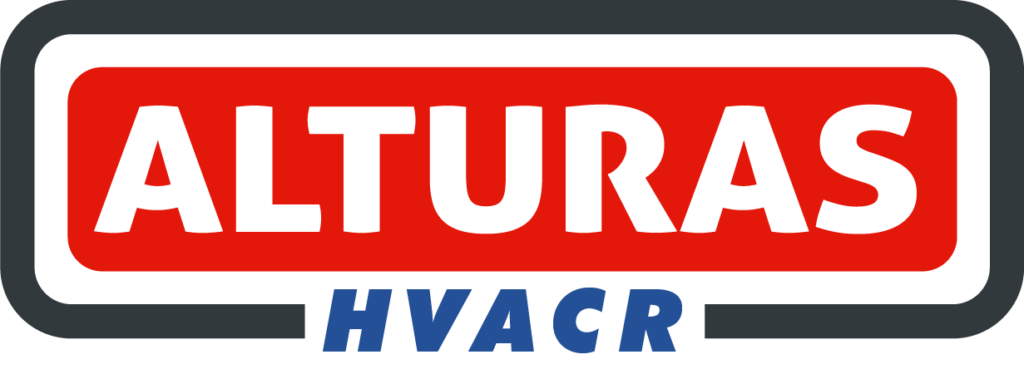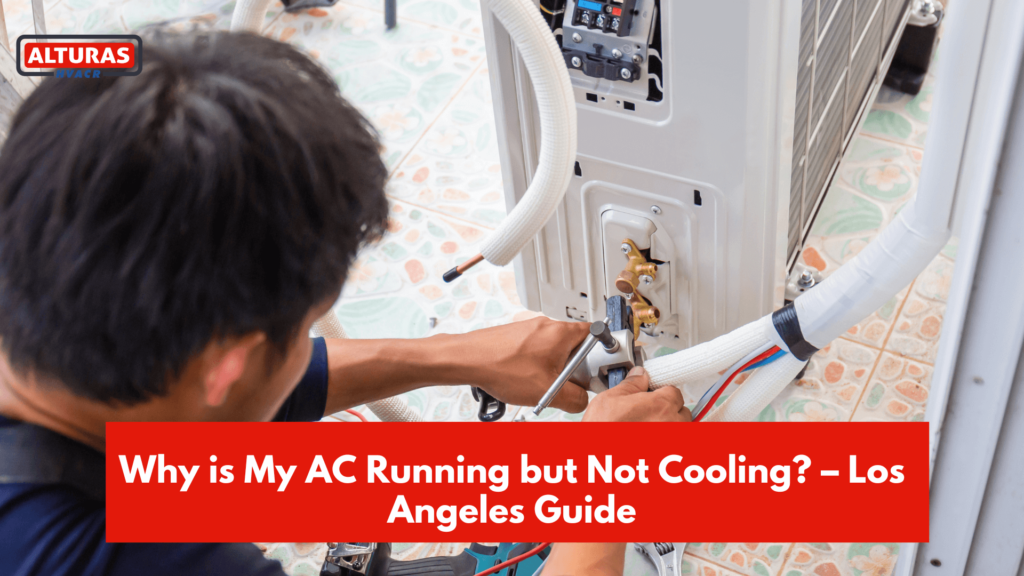In Los Angeles, the heat can be unbearable, especially during the summer months. If your air conditioner is running but not cooling, it can be frustrating and uncomfortable. There are many possible reasons for this, ranging from minor issues that you can fix yourself to more serious problems that require professional attention. In this guide, we will walk you through the most common reasons why your AC might be running but not cooling and what you can do to resolve the issue.
Need Help? Get Reliable AC Repair Services in Los Angeles
Why is My AC Running but Not Cooling? – Common Reasons for Los Angeles Homes and Businesses
1. Clogged Air Filters
One of the most common reasons for an AC unit running but not cooling is a clogged air filter. When air filters are dirty, they block the flow of air, reducing the efficiency of the system. This can cause the evaporator coil to freeze and prevent the AC from cooling properly. In Los Angeles, where dust and pollen levels can be high, air filters can clog quickly. It’s important to check and replace them every 1-3 months.
2. Low Refrigerant Levels
If your AC is blowing warm air, the problem could be low refrigerant levels. Refrigerant is the chemical that cools the air in your AC system. If there is a leak or if the refrigerant wasn’t charged properly during installation, the system won’t have enough refrigerant to cool the air effectively. Los Angeles HVAC professionals can help locate and repair any leaks before recharging your system with refrigerant.
3. Thermostat Issues
Sometimes, the issue isn’t with the AC unit but with the thermostat. If your thermostat is not set correctly or is malfunctioning, the AC might not cool as expected. Check to see if the thermostat is set to “cool” and that the temperature is set lower than the current room temperature. If your thermostat is outdated, consider upgrading to a smart thermostat for better control and energy savings.
4. Dirty Condenser Coils
The condenser coils in your outdoor unit can become dirty over time, especially in urban areas like Los Angeles. Dirt, grime, and debris can collect on the coils, causing the system to work harder to cool the air. This reduces its efficiency and can prevent your AC from cooling properly. Cleaning the condenser coils or scheduling regular HVAC maintenance in Los Angeles with a professional HVAC technician can help resolve this issue.
5. Blocked Vents and Registers
If your air vents or registers are blocked by furniture, curtains, or other objects, the cool air won’t be able to circulate throughout your home or business. Make sure all vents are open and free from obstructions. In Los Angeles, homes with central air systems can often overlook this simple fix.
6. Leaking Ductwork
Over time, the ductwork in your home or business can develop leaks, which allow cool air to escape before it reaches the intended rooms. This results in your AC running constantly but not cooling the space. It’s essential to have your ductwork inspected and sealed by a Los Angeles HVAC technician to ensure that your system is working efficiently.
7. Faulty Capacitor
The capacitor is a small but essential component of your AC system that helps start the compressor and fan motor. If the capacitor is faulty, the AC might struggle to start or may not cool at all. In this case, you’ll need an HVAC professional to replace the capacitor.
8. Frozen Evaporator Coil
If the evaporator coil freezes, your AC will run but not cool. This can happen if there is restricted airflow due to a dirty filter or if the refrigerant levels are low. To fix this, you’ll need to turn off the AC and allow the coil to thaw. Afterward, check the air filters and refrigerant levels to prevent it from freezing again.
9. Tripped Circuit Breaker
A tripped circuit breaker can prevent the outdoor unit from running, even though the indoor unit is working. This can cause the AC to blow warm air. If your outdoor unit isn’t running, check the circuit breaker and reset it if necessary. If the breaker trips frequently, contact a professional to inspect your electrical system.
10. Old or Inefficient System
Sometimes, the issue may simply be that your AC unit is too old or inefficient to cool your home or business effectively. In Los Angeles, where air conditioners run frequently due to the hot climate, older units can wear out quickly. If your system is more than 10-15 years old, it might be time to consider an upgrade to a more energy-efficient model.
Helpful for you: HVAC Energy Efficiency Tips for Los Angeles Businesses
Conclusion
If your AC is running but not cooling, it’s important to identify the issue as soon as possible to avoid further discomfort and costly repairs. Some problems can be resolved with simple fixes, like replacing air filters or adjusting the thermostat. However, more complex issues, such as refrigerant leaks or faulty components, may require the help of a professional HVAC technician. Regular maintenance is key to ensuring your AC operates efficiently, especially in the hot Los Angeles climate.
FAQs
1. How often should I replace my AC filters in Los Angeles?
It’s recommended to replace your AC filters every 1-3 months, depending on air quality and usage. In Los Angeles, where dust and pollution levels can be high, it’s advisable to check them monthly.
2. Why does my AC blow warm air?
Your AC may blow warm air due to low refrigerant levels, dirty filters, or thermostat issues. You should check these components and call a professional if the problem persists.
3. Can I clean the condenser coils myself?
Yes, you can clean the condenser coils using a soft brush or garden hose. However, it’s recommended to schedule professional maintenance for a thorough cleaning.
4. What should I do if my AC keeps freezing?
If your AC keeps freezing, check the air filters and refrigerant levels. A professional can help if these components are not the issue.
5. How long do AC units last in Los Angeles?
With proper maintenance, AC units can last 10-15 years in Los Angeles. Older units may need to be replaced for better efficiency.

